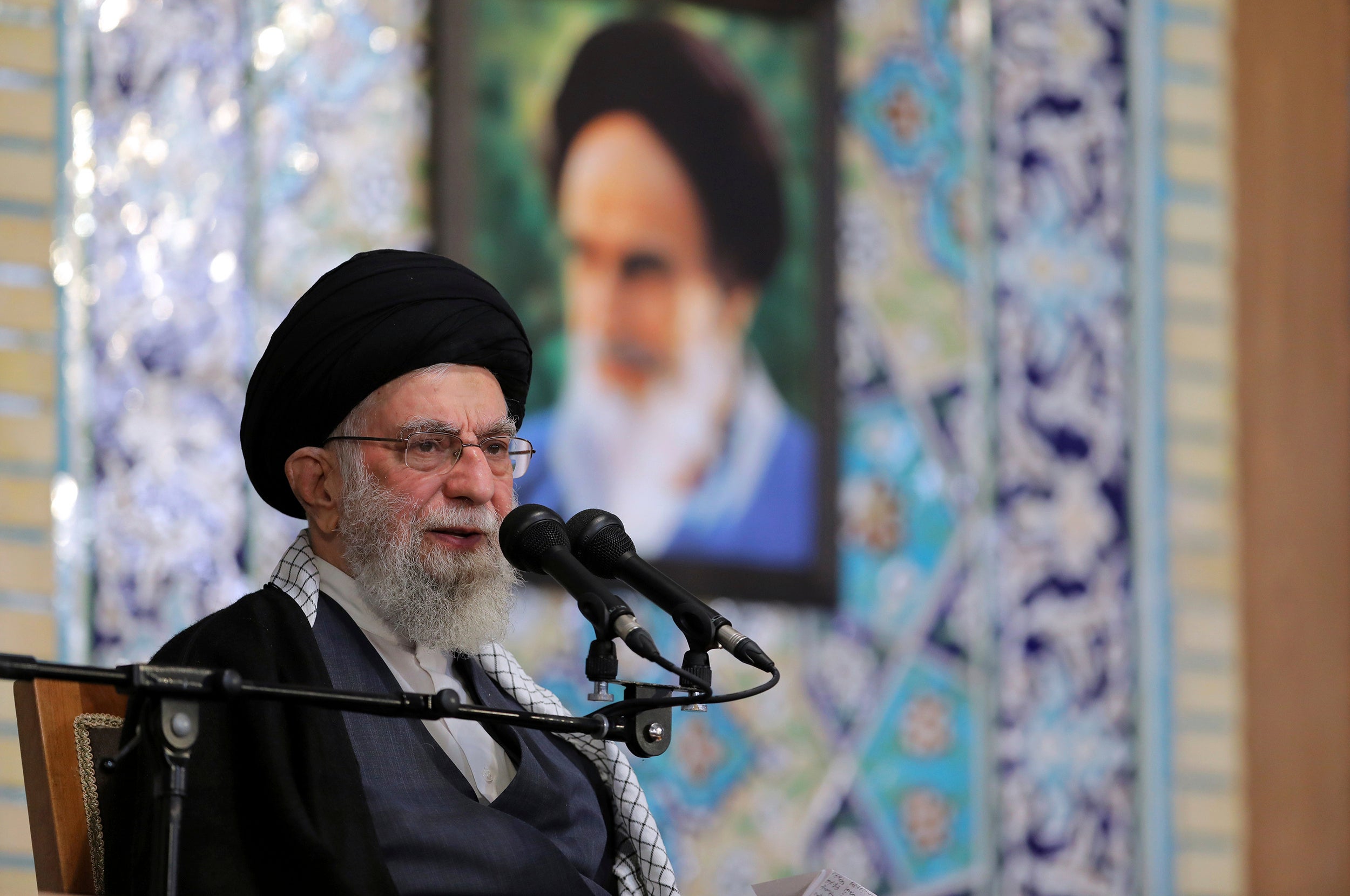Iran's top leader rules out referendums on divisive issues
Iran’s supreme leader has ruled out the holding of popular referendums on state policies

Your support helps us to tell the story
From reproductive rights to climate change to Big Tech, The Independent is on the ground when the story is developing. Whether it's investigating the financials of Elon Musk's pro-Trump PAC or producing our latest documentary, 'The A Word', which shines a light on the American women fighting for reproductive rights, we know how important it is to parse out the facts from the messaging.
At such a critical moment in US history, we need reporters on the ground. Your donation allows us to keep sending journalists to speak to both sides of the story.
The Independent is trusted by Americans across the entire political spectrum. And unlike many other quality news outlets, we choose not to lock Americans out of our reporting and analysis with paywalls. We believe quality journalism should be available to everyone, paid for by those who can afford it.
Your support makes all the difference.Iran’s supreme leader on Tuesday ruled out the holding of popular referendums on state policies.
Iran faced calls for a referendum on the Islamic Republic itself during anti-government protests last year, and a moderate former president recently suggested such votes should be held to decide major policies as a way of reducing divisions.
Supreme Leader Ayatollah Ali Khamenei, who has the final say over such policies, rejected the idea when asked about it during a meeting with university students.
“Where in the world is this done? Is it possible to hold a referendum for various issues of the country?” he asked. “For any single issue, the country would be engaged in debate and arguments and polarization for six months, so that a referendum can be held on that issue.”
He appeared to be referring to recent remarks by former President Hassan Rouhani, a relative moderate, who had suggested holding referendums on domestic and foreign policies.
Iran holds regular presidential and parliamentary elections overseen by clerical bodies that vet candidates. Under the constitution, a referendum is only possible if two-thirds of parliament votes for it and a 12-member constitutional body — half of whom are appointed by the supreme leader — approves.
Iran saw months of nationwide anti-government protests sparked by the death in September of a 22-year-old woman who was detained by the morality police for allegedly violating the country's strict Islamic dress code. The protests rapidly escalated into calls for the overthrow of the ruling clerics, marking a major challenge to their four-decade rule.
The protests died down earlier this year amid a violent crackdown by authorities, though there are lingering signs of discontent.
Iran held referendums to establish an Islamic Republic and approve a new constitution shortly after the 1979 revolution. It held another referendum in the late 1980s to amend the constitution.